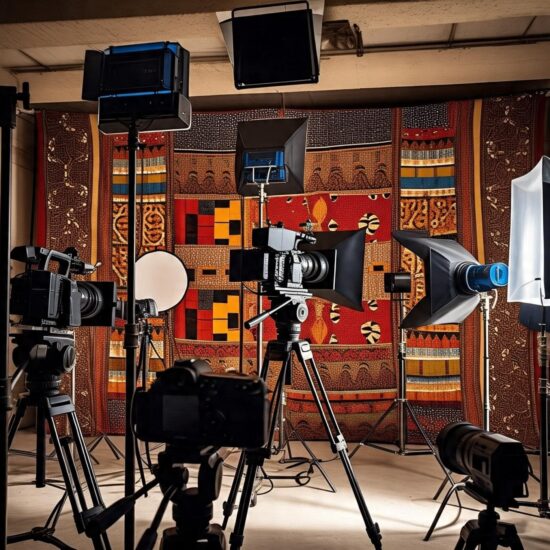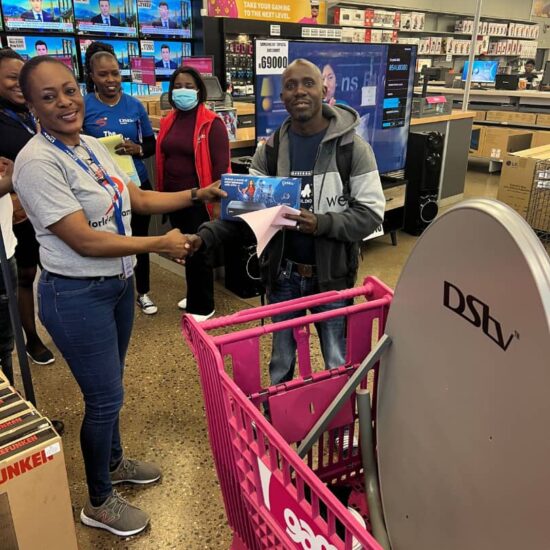
For the past decade, international interest in African culture, including film, art, music
and fashion, has steadily increased. Today it is regarded as an exportable asset,
presenting significant revenue opportunities for the continent’s creatives. But could the
monetisation of African culture open it up to exploitation, resulting in its ultimate demise
as opposed to its preservation?
To answer this, it is useful to understand the idea of monetising culture. Physical
products that you buy in a store or online have a value. That is, the cost of the materials
to make the product, the distribution cost and the sales cost. These are all quantifiable
amounts.
The value of African culture
The idea of putting a price tag on a culture is less easy to understand. In effect, the
‘price’ of a culture is the value assigned to its expression, whether that be through film,
art, music or fashion. That value is determined by how much the viewer, listener or
wearer is prepared to pay to ‘own’ that piece of culture. This amount is largely driven
by perceived value than actual monetary value.
In recent years, Africa’s entertainment industry has grown phenomenally, acquiring an
impressive value. According to PwC, the African entertainment market is set to grow
by 15% annually from 2020 to 2025, reaching $4.6 billion by the end of this year.
While that should equate to an increase in opportunities for African creatives, this
projected growth is a double-edged sword. With more eyes on African culture comes
greater demand for creatives’ works – even if that means acquiring it illegally.
Monetisation a gateway for piracy
Africa’s rich storyteller tradition has made its fertile ground for feature films and TV
shows. However, the rise in content piracy in recent years has hit this industry hard,
with the unlawful copying and distribution of video content threatening to wipe it out.
Zimbabwean filmmaker and actor, Ben Mahaka, knows this all too well. Back in 2013
he and a group of friends made Gringo Troublemaker, a self-funded comedy feature
film. A week after its release, Mahaka found pirated copies of the film being sold at a
bus terminus for $1.00 per DVD.
“The authorities were not interested in investigating the case. We pressured them and
eventually they raided the market where the discs were being sold. They discovered
10 000 pirated DVDs! That’s $10 000 for one film. Afterwards a police officer asked if
the seller could get his stuff back after paying a fine. He didn’t understand those discs
didn’t belong to the seller, they belonged to us as the filmmakers. That was our
intellectual property,” Mahaka explains.
A bootleg copy of the same film was uploaded to YouTube. It hit 1.2 million views
before Mahaka reported it and had it taken down.
“There are people who grow up knowing they can make a decent living from things
they have not put one cent into. They don’t have to be creative or hardworking. They
just have to be ruthless. These ruthless thieves are the ones who show up in the
neighbourhoods driving the nice cars and the local kids then think, ‘oh this is how
money is made’. Why try something else when there is such an easy way?” he says.
Creatives’ livelihoods cut short
Malawian producer and director, Shemu Joyah, says piracy is killing African
storytellers. Filmmaking is expensive, especially in Africa where limited funding is
available. Not only is piracy undermining the ability of filmmakers to earn an income
from their existing films, but the potential for them to make more films in the future.
“You break even on a film only to find that someone has pirated it and everyone is
watching it on their phones or computers, and you’re getting nothing out of it. That’s
devastating. It’s totally devastating, and it kills your ability to make another film. This
has affected me a lot. I have five or six scripts ready to go, I can start shooting them
tomorrow. But due to a lack of funding, I cannot. If every person who has watched one
of my films had paid just one dollar for doing so, I would have been able to make all
these other films,” Joyah says.
“I would have thought that my three films would have generated enough income for
me to not have to go and ask for funding. But because of piracy, and my films being
pirated, people watched them elsewhere. That’s a loss to me, and there’s not a lot I
can do about it,” he adds.
Favourite shows hang in the balance
It is not only feature films where this is happening. Shows currently being screened on
DStv’s Zambezi Magic are also targeted.
The Zambian drama series Mpali has aired for a number of years and has a robust
public following. After extreme loadshedding last year, which affected viewers’ ability
to watch the show at the right time, fans of the show created Facebook and WhatsApp
groups selling pirated recordings of episodes.
“These people record their screens and make people pay to join the group and watch
the episodes. They’re publicly advertising this, and viewers are paying and supporting
them. People are happy to pay pirates to watch our content, but not happy to pay us
as the producers who make that content for them,” says Mpali scriptwriter, Tisa Phiri.
Fans of the show want future seasons, yet buying illegal episodes of the show
minimises the chances of that happening.
“People don’t have any idea how much time and money it takes to create the shows
they love so much. But they’ll pay 20 kwacha to watch the show for the whole week.
This really affects us. If people watch the show illegally and stop paying their
MultiChoice subscription, MultiChoice will stop investing in our local content, and we
will be forced to stop creating it,” she notes.
Silencing Africa’s authentic voice
Content piracy is connected to a wider criminal system that in some cases also
includes drug and arms running, and child trafficking. Members of the public who
support pirated content are effectively part of these syndicates.
“When people bootleg international films, they really don’t understand that they’re
helping pirates to build up their systems. Locals are now victims of this piracy. The
income streams from one movie should sustain you while you are preparing to make
your next one. But those income streams are shrinking. In the CBD of Harare, movie
houses are closing down, because down the road there is a guy selling pirated copies
of the latest films for $1.00,” says Mahaka.
All the filmmakers are aware of the ultimate outcome of content piracy if left
unchecked: Africa loses her voice.
These creatives use film to keep African stories alive. When their content is hijacked,
so are their stories, so is a large part of Africa’s culture and what makes the continent
unique.
“African storytelling teaches people from young how to behave correctly. This rise in
piracy is another symptom of the effect of moving away from our cultural roots and the
expectations on people of what is right and moral. People should want to protect our
stories, not sell them for 20 kwacha a month. They should want to keep our heritage
safe.
“As African filmmakers we can’t survive like this. Piracy detracts from the creative
industry’s creativity and innovation. It silences us and our whole generation – and
those coming up behind us. That’s how culture gets lost through time, and we are
ultimately left with foreign B-grade movies and no original, authentic African content,”
says Phiri.
When done correctly, monetising African storytelling can be immensely positive for
Africa’s creative sectors. By local filmmakers being the source of African films and TV
shows, we prevent cultural appropriation and Africa being exclusively seen through
the eyes of Hollywood.
By taking ownership of our own culture, we preserve it. But we need the support of all
citizens of this continent to increase the value of our culture and keep it from being
sold for a dollar on every street corner.



